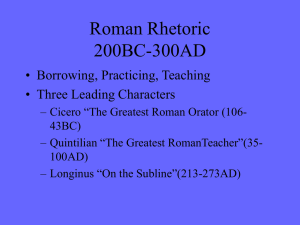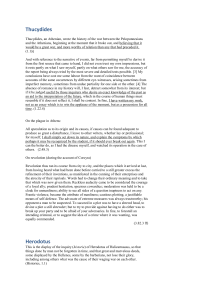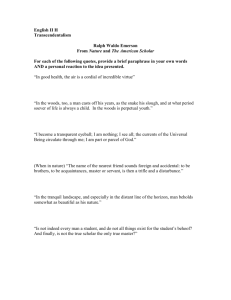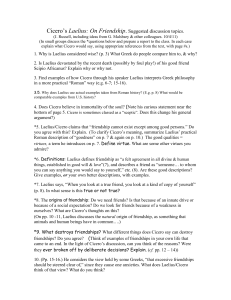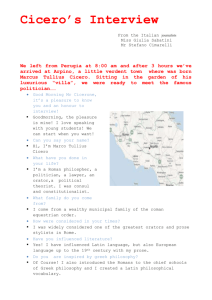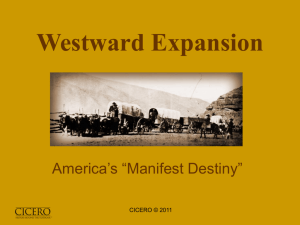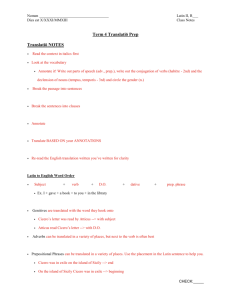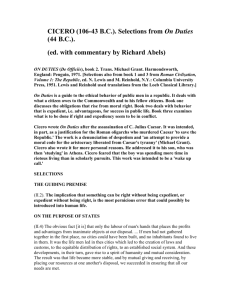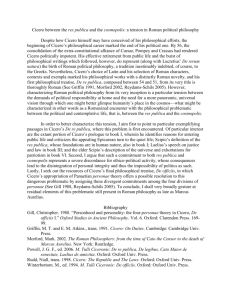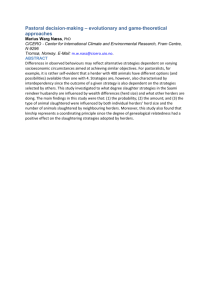Abstract
advertisement
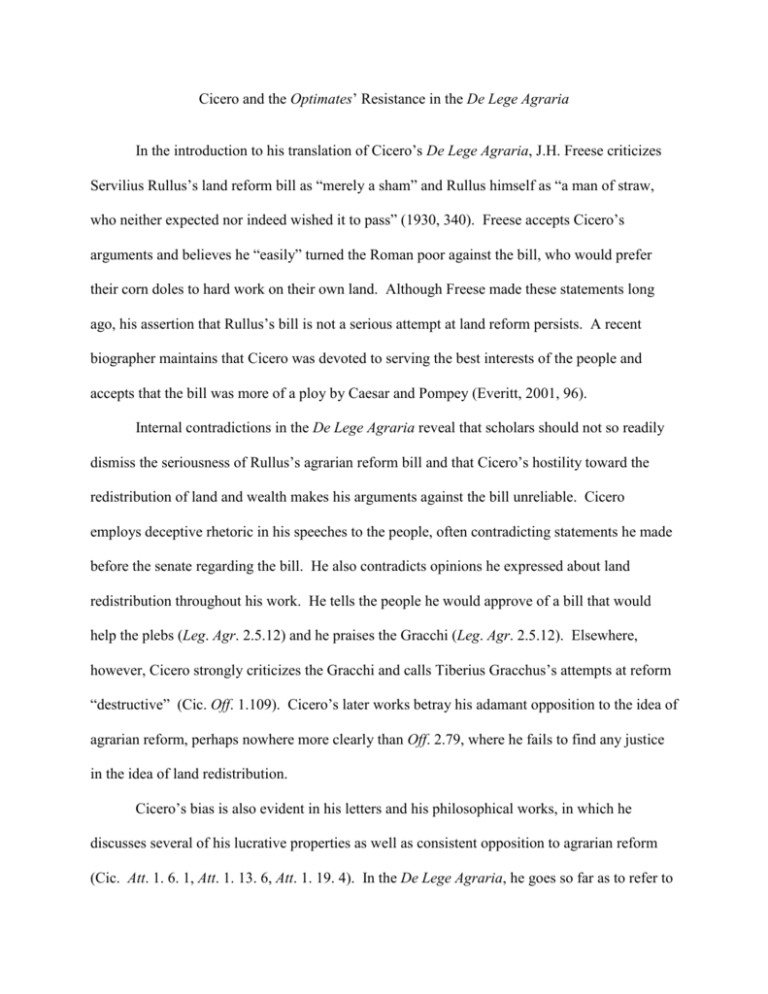
Cicero and the Optimates’ Resistance in the De Lege Agraria In the introduction to his translation of Cicero’s De Lege Agraria, J.H. Freese criticizes Servilius Rullus’s land reform bill as “merely a sham” and Rullus himself as “a man of straw, who neither expected nor indeed wished it to pass” (1930, 340). Freese accepts Cicero’s arguments and believes he “easily” turned the Roman poor against the bill, who would prefer their corn doles to hard work on their own land. Although Freese made these statements long ago, his assertion that Rullus’s bill is not a serious attempt at land reform persists. A recent biographer maintains that Cicero was devoted to serving the best interests of the people and accepts that the bill was more of a ploy by Caesar and Pompey (Everitt, 2001, 96). Internal contradictions in the De Lege Agraria reveal that scholars should not so readily dismiss the seriousness of Rullus’s agrarian reform bill and that Cicero’s hostility toward the redistribution of land and wealth makes his arguments against the bill unreliable. Cicero employs deceptive rhetoric in his speeches to the people, often contradicting statements he made before the senate regarding the bill. He also contradicts opinions he expressed about land redistribution throughout his work. He tells the people he would approve of a bill that would help the plebs (Leg. Agr. 2.5.12) and he praises the Gracchi (Leg. Agr. 2.5.12). Elsewhere, however, Cicero strongly criticizes the Gracchi and calls Tiberius Gracchus’s attempts at reform “destructive” (Cic. Off. 1.109). Cicero’s later works betray his adamant opposition to the idea of agrarian reform, perhaps nowhere more clearly than Off. 2.79, where he fails to find any justice in the idea of land redistribution. Cicero’s bias is also evident in his letters and his philosophical works, in which he discusses several of his lucrative properties as well as consistent opposition to agrarian reform (Cic. Att. 1. 6. 1, Att. 1. 13. 6, Att. 1. 19. 4). In the De Lege Agraria, he goes so far as to refer to the decemvirs, the men who would oversee the implementation of this bill, as “kings,” a name the optimates had attached to those who proposed agrarian reform bills in the past (Leg. agr. 2. 35). This paper ultimately forces a reconsideration of the notion that Cicero had little trouble turning the people against the bill and argues that the bill itself should be taken seriously. Select Bibliography Brunt, P.A. “The Army and the Land in the Roman Revolution.” The Journal of Roman Studies, Vol. 52, Parts 1 and 2 (1962), pp. 69-86. Everitt, A. Cicero: The Life and Times of Rome’s Greatest Politician. New York: Random House, 2001. Finley, M.I. The Ancient Economy. University of California Press, 1973. ________. Politics in the Ancient World. Cambridge University Press, 1983. Freese, J. H. tr. Cicero: Orations. vol. 6. Cambridge, MA: Harvard University Press, 1930. Garnsey, P. Food and Society in Classical Antiquity. Cambridge: Cambridge University Press, 1999. Lintott, A. Judicial Reform and Land Reform in the Roman Republic. Cambridge: Cambridge University Press, 1992. Rawson, E. Cicero: A Portrait. London: Bristol Classical Press, 1983. Runciman, W.G. “Capitalism without Classes: The Case of Classical Rome.” The British Journal of Sociology, Vol. 34, No. 2 (Jun., 1983), pp. 157-181. Ward, A. “Cicero’s Fight Against Crassus and Caesar in 65 and 63 BC.” Historia: Zeitschrift für Alte Geschichte, Vol. 21, No. 2 (2nd Qtr., 1972), pp. 244-258. Walcot, P. “Cicero on Private Property.” Greece & Rome, Second Series, Vol. 22, No. 2 (Oct., 1975), pp. 120-128.
